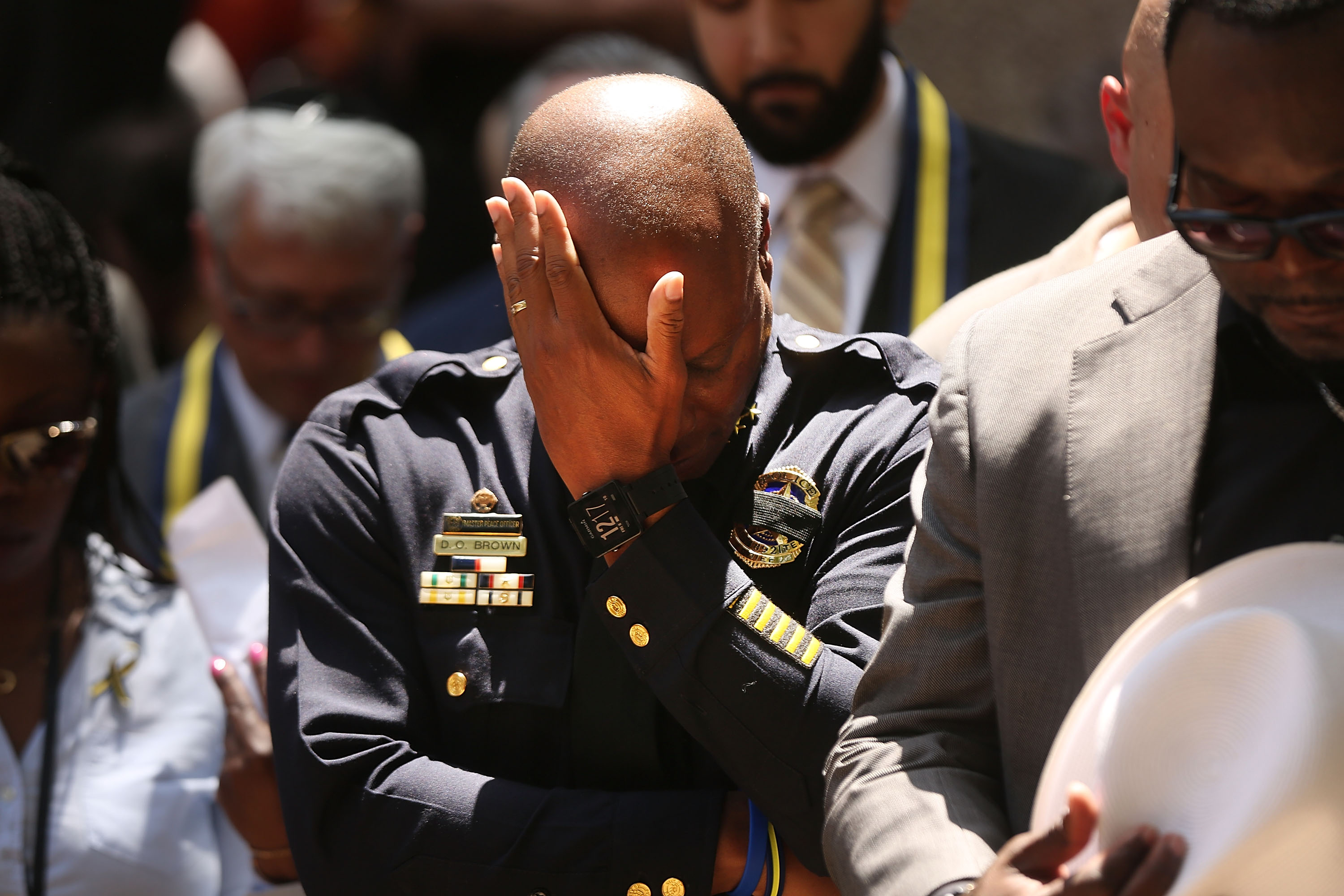How the politics of meaning failed us
For the blighted segment of the population now sowing "senseless violence" with such gut-twisting regularity, the personal politics of meaning has become a cruel parody


A free daily email with the biggest news stories of the day – and the best features from TheWeek.com
You are now subscribed
Your newsletter sign-up was successful
We live in trouble times. And we don't know what to do about it.
Whatever the smaller lessons to come, this is the big lesson of the Dallas attacks, in which a lone black gunman killed five police officers after a peaceful protest in the wake of fatal police shootings of black men in Louisiana and Minnesota.
In the face of grief, violence, and a tangle of racial animus, America is hardly short on rabid rhetoric or partisan policy proposals. The air is thick with takes and riddled with the-case-fors. But it so often seems that none of it matters. It is largely, as Shakespeare wrote, "a tale told by an idiot, full of sound and fury, signifying nothing."
The Week
Escape your echo chamber. Get the facts behind the news, plus analysis from multiple perspectives.

Sign up for The Week's Free Newsletters
From our morning news briefing to a weekly Good News Newsletter, get the best of The Week delivered directly to your inbox.
From our morning news briefing to a weekly Good News Newsletter, get the best of The Week delivered directly to your inbox.
Everyday life has become so empty for so many of us. But simultaneously, we are full of rage and despair. Many fear that this trickle of killings we can't seem to stop will therefore become a flood.
We ought to confront these fears head on but without panic. And the way to do it is to recognize that the "politics of meaning" have failed.
That phrase, inserted by Hillary Clinton into a 1993 health care speech and with us ever since, arose from California psychotherapist-activist Michael Lerner. But Lerner credited the theologian Abraham Joshua Heschel. "Heschel taught me that the quest for meaning is the central hunger in advanced industrial societies," Lerner wrote. "The self is in need of a meaning which it cannot furnish by itself." If "neoliberal" politics have been determined by anything since the first Clinton era, it has not been economic or military policy but this, cultural policy. Politics will progressively fill out our meaning for us. In an age when the content of life seems too insubstantial to sustain us, this form of rule alone can nourish our spirit. There is no higher cause than an individual's "meaning," we are told.
But the same post-hippie elite certain that the politics of meaning must rule was also convinced that "the personal is political," as Lerner's fellow activists and feminist contemporaries put it. A mystical holy trinity was born: the meaningful, the personal, and the political, three in one, one in three. The year before Clinton popularized "the politics of meaning," Anthony Kennedy's plurality opinion in Planned Parenthood v. Casey injected into the heart of that politics the fateful proposition that all meaning is personal: "At the heart of liberty is the right to define one's own concept of existence, of meaning, of the universe, and of the mystery of human life."
A free daily email with the biggest news stories of the day – and the best features from TheWeek.com
But for the blighted segment of the population now sowing "senseless violence" with such gut-twisting regularity, the personal politics of meaning has become a cruel parody.
As we "good Americans" struggle to find what matters in a world choked with endless "meaningful" content, the isolated, vengeful, muddled, tormented individuals scourging our communities throw back our banal hodgepodge of meanings, mocking us with their "motives," mocking the very idea of "motive" as we wish it still existed. This "lost boy" declares for ISIS, that one for race war; in a culture that denies that any choices or identities are impossible, sexual, family, military, ethnic, and other once-substantial markers seem to explode together, leaving a postmodern debris field of meaning — no part of which we can trust to definitively matter.
We need to recover what the personal politics of meaning nearly took away. We need to feel fixed, durable, and clear. We need to feel as though things that are bigger than ourselves, than our factions, matter. When individual meaning and truth are held forth as the ultimate prize of the self, is it any wonder that many Americans search for and find this meaning in the wrong place?
Will moving away from the politics of meaning stop the killing? Not right away, of course. But so little ever does. At least waking up to the failure of the neoliberal mystique will steady us enough to remember that, just decades ago, things seemed immeasurably worse.
James Poulos is a contributing editor at National Affairs and the author of The Art of Being Free, out January 17 from St. Martin's Press. He has written on freedom and the politics of the future for publications ranging from The Federalist to Foreign Policy and from Good to Vice. He fronts the band Night Years in Los Angeles, where he lives with his son.
